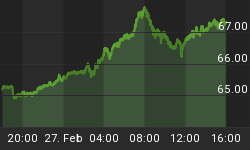The Squid game series was good for Netflix’ financial results, Halloween costume sellers and … even cryptocurrency scammers who have amassed a small fortune by convincing people to combine two hot trends.
A Squid Game-themed cryptocurrency called “Squid” is now trading at zero after its founders appear to have cashed out and disappeared with a cool $3.38 million.
The token’s price surged over the course of the past few days by thousands of percentage points; but people were blocked from reselling once they opted in. The SQUID cryptocurrency peaked at a price of $2,861 before plummeting to $0, leaving more than 43,000 investors defrauded.
CNBC reported that a Shanghai-based investor had put $28,000, his entire life savings, into the coin. He and many others jumped on board after a barrage of mainstream press coverage.
Squid Crypto was launched late last month and was marketed as a "play-to-earn cryptocurrency”. The founders presented the setup as a token that would be used for a new online game set to go live this month and inspired by the Netflix series.
Soon afterwards, CoinMarketCap issued a warning that it had received reports that users were being blocked from selling the token on the decentralized exchange.
Despite the warnings, investors continued to dump money into SQUID, pushing its gains to more than 230,000%. Then, on Tuesday, the scammers cashed out, draining liquidity from the exchanges and sending the price to $0.
The website and all social media presence has since disappeared. Netflix told CNBC it had no affiliation with the project.
This kind of scam is commonly called a "rug pull" by crypto investors--a practice in which scammers artificially hype and inflate a token and pull the plug, dashing with the cash. It’s a classic pump and dump.
CipherTrace blockchain forensics noted a surge in decentralized finance (DeFi) related crime last year where most of them were “rug pull.”
“Half of all 2020 crypto hacks were of DeFi protocols—a pattern that was virtually negligible in all prior years—and nearly 99% of major fraud volume in the second half of 2020 stemmed from DeFi protocols performing ‘rug pulls’ and other exit scams in a pattern eerily reminiscent of the 2017 ICO craze,” the report said.
According to a report by the Federal Trade Commission, more than $80 million has been lost in crypto-related scams since late last year.
A similar rug-pull occurred in April with Mando, a cryptocurrency that used images from Disney’s series Mandalorian
Over the past couple of years, cryptocurrency has been linked to criminal activities such as Ponzi schemes, extortion, theft, and money-laundering.
The CipherTrace report said that in 2019, cryptocurrency theft skyrocketed with losses from digital currency crime hitting $4.4 billion in the first nine months of the year.
That was a 150% increase over the first nine months of 2018. However, mainly due to improved security systems, losses from cryptocurrency theft, hacks, and fraud fell 57% to $1.9 billion last year.
















